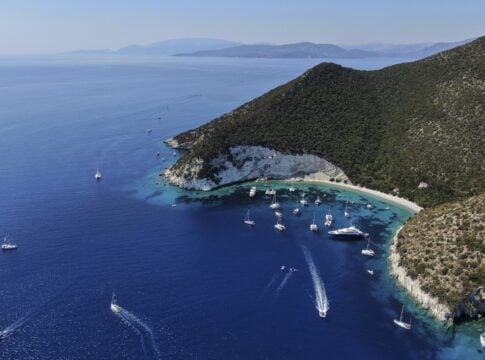By Vassilis Korkidis*
Undoubtedly immigration is one of the most discussed issues in Europe today. Despite various studies showing that immigration can have a positive contribution to the countries of destination, a large part of Europeans believe that it has more cost than benefit.
The fact is that immigrants are not willing to integrate into their host (first arrival) societies, but seek to cross over to other privileged destinations. Since last summer, Mediterranean countries have again become the gateway to Europe for those fleeing armed conflict and poverty in the Middle East, Asia and Africa.
Greece is constantly struggling and will have to deal again this year with the highest number of arrivals of refugees since 2016. A large number of immigrants, using various types of craft, have landed on Greek islands from Turkey. Cyprus is also concerned about the resurgence of arrivals, and Italy, Malta and Spain are still affected by the phenomenon. In recent months, the EU’s attention on immigration has focused mainly on the central Mediterranean. The course of the eastern Mediterranean has not been properly addressed despite the increasing trend of arrivals in this area, which is causing serious problems mainly in our country, with the high unemployment rate.
The EU urgently needs a common asylum policy in order to avoid the recurrence of uncontrolled migration as it was the case four years ago. Therefore Greek Parliament voted yesterday for a new realistic asylum law in order to avoid the uncontrolled immigration once again and the same time to send a message to Turkey and Europe.
However, migration is not just about the asylum and acceptance of rescued migrants and refugees. Immigrants can supplement indigenous workers and increase overall productivity through entrepreneurship and consumption. Contrary to what some EU leaders and populists tell us, immigrants are boosting the EU economy by filling the necessary jobs in important industries, even creating businesses, while at the same time maintaining an aging Europe, demographically younger.
A well-designed migration strategy could potentially diversify local economies and encourage entrepreneurship to take advantage of the available workforce.
Entrepreneurship is also a powerful driver of economic growth and productive jobs. It creates new activities, opens new markets and cultivates skills and competences. Migrants bring other habits, experiences and ideas to their new countries adding diversification and create the need in a community for immigrants, to start a small business, earn money and support other members of their family. Within the EU, immigrants also represent an important group of potential consumers.
Entrepreneurship promotion, is integrated into the EU 2020 Entrepreneurship Action Plan, which aims to create the conditions for smart, sustainable and inclusive growth. This Action Plan also provides a common policy framework and supportive measures to assist EU countries in their national integration policies for third-country nationals.
The European Commission supports some training and guidance programs for potential practitioners in immigrant communities. It is funding projects such as M4CHANGE and EUStartGees focused on identifying potential self-employed immigrants, raising their awareness of entrepreneurship. This approach certainly leaves the field open for discussion on migration issues. The usual debate and reflection during discussions is that immigrants deprive local communities of jobs, harm existing businesses and create additional costs when they do not want to integrate. Indeed, in most European countries, the preferred solution is to help them return home.
An interesting debate on the integration of immigration into Europe through entrepreneurship will take place in a few days on November 11 at the European Commission Delegation in Rome. So we will wait to learn the conclusions.
As far as immigration and integration are concerned, Greece has sent a loud message towards every direction, in East and West, that from now on, it has a new asylum law to implement.
*Korkidis is the president of the Piraeus Chamber of Commerce and Industry (PCCI)














